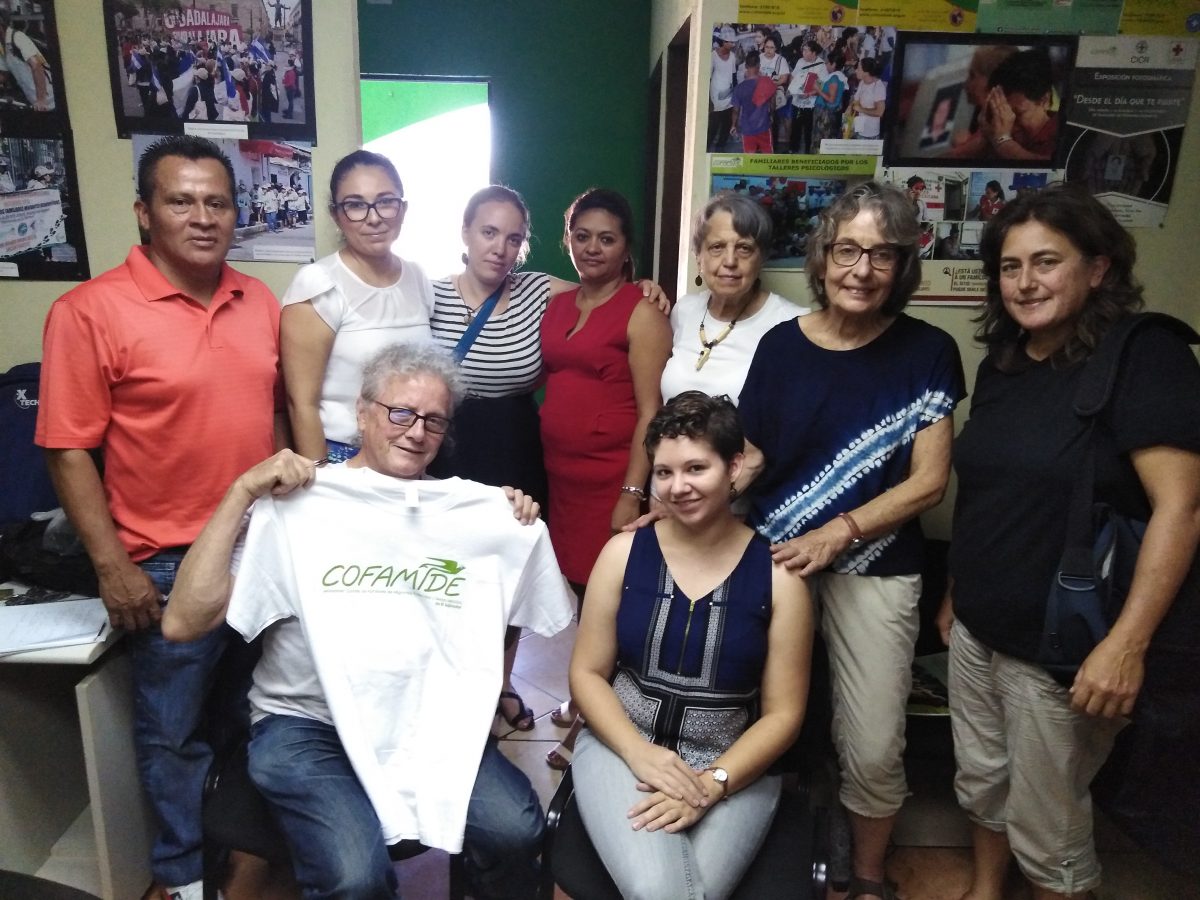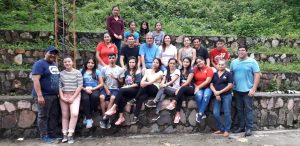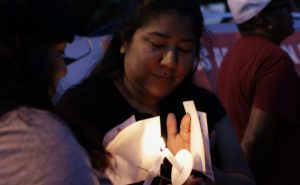Delegations, Migration, Rights for Youth and Women
When we met with COFAMIDE / Cuando nos reunimos con COFAMIDE
(EN ESPAÑOL ABAJO)
One of the scheduled activities with our migration delegation was meeting with Santos Paulino and Cleotilde Ramirez, from COFAMIDE, also with Alejandra Bonilla, a psychologist supporting them.
COFAMIDE is the Committee of relatives of disappeared migrants. It started as an organization of those who did not know the whereabouts of their relatives that once decided to migrate and then, they started supporting each other, hence the recent psychological support for all these people that, while suffering, hear others going through similar difficulties.
Santos put the situation in perspective: sometimes the person that chooses to migrate used to be the biggest economical support in the household. When his wife disappeared, he could not afford sending his children to the university or keep paying mortgage for the house that was eventually seized. (Read more about this situation)
He also shared that, although he was sad when his wife’s corpse was found (matching the DNA with her children), he also felt the joy of having some closure.
Nevertheless, many people are not happy with the little or total absence of tact from the government when handling this process: when caskets arrive, they are placed in a warehouse at the airport and families don’t have a place to sit, then they are taken on the back of a pick-up truck, tied with strings, an ironic irreverence in a country like ours that prides itself of being very Christian.

Cleotilde, on the other hand, shared the story of the Mothers’ caravan in whose logistics they are involved with other organizations. They receive around 20 sits for mothers (or closest relatives) of disappeared migrants and they are taken to Mexico. There, they walk around carrying the photos of their loved ones and ask if anyone has seen them. Sometimes they hear from them in “red-light districts” where someone might say “She was here but they have taken her already”. This is not evidence that could be brought to the authorities, it’s simply hearsay. They carry on wondering what happened and what will happen with their loved ones.

Como parte de las actividades de nuestra delegación de migración, el grupo tuvo la oportunidad de hablar con Santos Paulino y Cleotilde Ramírez, de COFAMIDE, así como con Alejandrina Bonilla, quien está apoyándoles en su capacidad de psicóloga.
COFAMIDE es el Comité de Familiares de Migrantes Desaparecidos. Surgió como una organización de personas que desconocían el paradero de sus familiares que un día decidieron migrar y luego estas mismas personas empezaron a apoyarse entre sí, de ahí que últimamente se busque apoyarles psicológicamente pues, aún sufriendo, escuchan a otras personas que atraviesan dificultades semejantes.
Santos nos puso la situación en perspectiva: a veces, el familiar que decide irse es quien solía dar un mayor apoyo económico en la casa. Cuando su esposa desapareció, él ya no pudo costear la universidad de sus hijos ni seguir pagando la casa que, eventualmente, embargaron. (Leer más sobre esto)
Él nos compartió que, aunque sintió tristeza cuando finalmente encontraron el cadáver de su esposa, cuyo ADN coincidió con el de sus hijos, también sintió alegría por poder tener un cierre.
Sin embargo, muchos lamentan el poco o nulo tacto para estos procesos de parte del gobierno: cuando los ataúdes regresan, son puestos en una bodega del aeropuerto en donde las familias no tienen dónde sentarse y luego son transportados en la cama de un pick-up, amarrados con lazos, irónico en un país como el nuestro que, en múltiples ocasiones, alardea de su orgullo cristiano.
Por su parte, Cleotilde nos compartió de las caravanas de madres en las que se involucran junto a otras organizaciones. Les dan alrededor de 20 cupos para madres (o parientes más cercanos) de las personas desaparecidas y se llevan a México. Ellas cargan las fotos de sus parientes y preguntan si las han visto. Muchas veces reciben noticias de ellas en las “zonas de tolerancia” y les dicen “aquí estuvo, pero ya la movieron”. Sin embargo, nada de esto constituye prueba. No pueden llevarle esta información a las autoridades y así siguen preguntándose qué ha sido y será de sus seres queridos.





